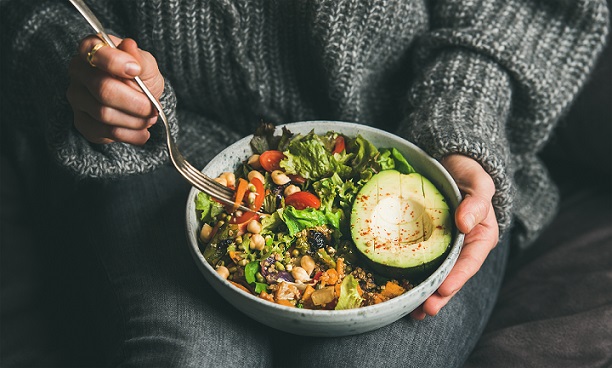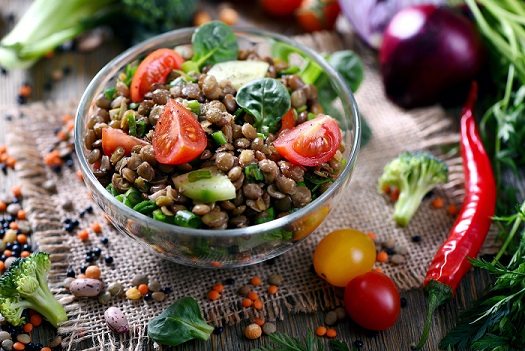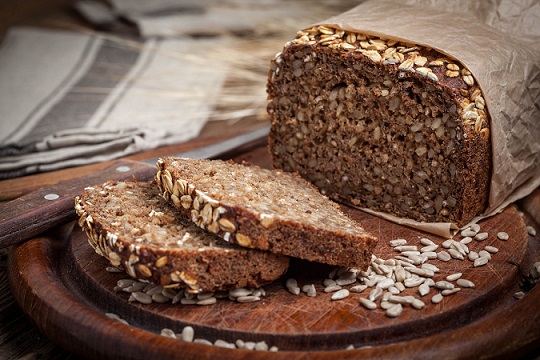The menopause is a natural process, diagnosed when there is an absence of a menstrual period for 12 months and no other biological or physiological cause can be identified. Menopause usually occurs between 45 and 55 years of age. The hormonal changes, in particular fluctuations and a decline of the sex hormones progesterone, oestrogen and testosterone, can result in symptoms which can last for several years up to and including the menopause.
Cruelty Free Beauty
- 4 signs you have low iron levels
- Zero Waste Beauty: Adopt a green routine with these sustainable products
- This eco-friendly beauty box is packed with refillable multi-taskers
- “I find myself using it even when I don’t need to!”
- Arctic-inspired natural skincare brand launches in the UK
- Green People launches beauty balm packaged in 100% biodegradable pot
- Lush launches same-day delivery service for its iconic handmade cosmetics
- “This cruelty-free tanning water gave me the confidence boost I needed”
- rho launches sustainable loungewear that gives back
- Rose & Caramel Raises Awareness For Women’s Self-Esteem & Mental Health With ‘I TAN FOR ME’ Campaign
- Couple launches entirely plant-based and refillable deodorant on Kickstarter
- View all
Eco Living
- Simple Hacks to Cut Your Food Waste with Gino D’Acampo
- Five Easy Ways to Reduce Food Waste
- Eat these foods to boost your mood
- Upgrade Your Cheese Toastie
- Have a healthy Christmas with these festive food swaps
- Omega-3 Health Benefits
- 5 minutes with Max La Manna
- A nutritionist’s guide to eating for healthy joints
- Easy ways to achieve your health goals
- Discover the benefits of raisins on a vegetarian diet
- Improve your gut health with California Raisins
- View all
Vegan Recipes
- Quorn Vegan Hot & Spicy Burger with Pink Slaw
- Tomato and Pumpkin Soup
- Pea and elderflower cocktail
- Matcha Coconut Ice Cream
- Vegan Lemon Bars
- Mango Salad with Thai Dressing
- Garden Gimlet
- Tofu & Green Beans Teriyaki
- Cornflakes Bombay
- Rainbow Pickle
- Soba noodles with kale and collards
- View all
Popular recipes
- Spinach and ricotta quiche vegetarian recipe
- Cheats mushroom and spinach lasagne vegetarian recipe
- Lentil bolognese vegetarian recipe
- Creamy mushroom stroganoff vegetarian recipe
- Malaysian Rendang curry vegetarian recipe
- Feta, Butternut Squash, Caramelised Onion and Cashew Nut Wellingtons
News
- Eco shop launches curated box of sustainable beauty buys
- How you can help with the Amazon wildfires
- Iceland Launches New Vegan Range
- ‘Pulled Oats’ latest plant-based protein to hit the market
- A catering company is now delivering vegetarian and vegan ingredients to your doorstep
- M&S Launches Three New Plant Kitchen Products
- Oatly is Giving Away Free Tea and Coffee Across the UK
- Nature lovers needed to help The Wildlife Trust restore 30% of nature by 2030
- UK’s First Plastic-Free Supermarket Opens In London
- Green People launches beauty balm packaged in 100% biodegradable pot
- Big Butterfly Count calls on public to help with conservation efforts
- View all
Nutrition for the menopause
Find out how the food you eat could help you manage symptoms of the menopause
ADVERTISEMENT FEATURE

What are the symptoms and effects on the body?
Up to 80 percent of women will experience symptoms such as depression, anxiety, poor memory and concentration, fatigue, insomnia, and hot flushes. Around 25 percent of women will experience such bad menopausal symptoms that their quality of life is affected.
A reduction in sex hormones, especially oestrogen, results in lowered bone strength which is one of the biggest risk factors for osteoporosis, and an increased risk of heart disease. Weight gain is a common problem at this time, in particular with hormonal changes affecting appetite and increasing fat storage, and also the natural reduction in muscle mass with aging, and reduced activity playing a role.
Stress on our bodies such as from our diet, emotional stress, and not getting enough exercise, relaxation or quality sleep can impact on our hormones and wellbeing. As well as other lifestyle changes, a healthy diet can help to reduce stress and manage the symptoms of the menopause.
Which foods should I reduce or avoid?
Some foods or drinks exacerbate menopausal symptoms, so avoiding or cutting them down can help. These include alcohol, refined sugars, processed food, caffeine, saturated fat, spicy foods and foods high in salt. Sugar in particular can play havoc on symptoms such as sleep problems, hot flushes, mood swings, weight and energy levels
How can diet help with my symptoms?

A healthy, wholefood diet with a good balance of wholegrains, healthy fats, high-quality proteins, and a wide variety of vegetables and fruit can help to relieve symptoms of the menopause.
Complex carbohydrates, or slow release carbohydrates, take longer to digest than simple sugars, and give sustained energy. They help to lower cholesterol and aid in achieving a healthy weight. They are packed with fibre, which helps to maintain gut health, and to remove toxins and waste. Complex carbohydrates can be found in wholegrains such as brown rice, quinoa, brown bread and pasta; vegetables, legumes such as black beans, chickpeas and lentils; nuts and seeds.
Eat healthy fats daily; these contain omega 3, which is an essential nutrient that our body cannot produce, so comes from diet alone. Healthy fats are needed to produce hormones as well as maintain hormone function, and have been shown to reduce inflammation, improve skin and brain function, stabilise blood sugar and improve joint health. Great sources of healthy fats are nuts and seeds, avocados and olive oil.
Have a good-quality protein with each meal from good quality nuts and seeds, dairy and legumes. Protein is needed to make hormones, and is important to help build muscle, bones, cartilage, skin and blood, and can help balance blood sugar levels. All of these are particularly important around the time of the menopause!
Keep well hydrated! Dehydration symptoms can occur with the loss of just 2% of your body’s usual water volume, and can leave you feeling lethargic, with poor concentration and mood, and may affect your skin and digestion, too.
Eat regular meals; this can help to keep your blood sugar levels stable, boost metabolism, maintain energy, prevent hunger and help to maintain a healthier diet.

Consume a wide variety of different coloured vegetables. Different veggies contain different nutrients, including vitamins and minerals. Cruciferous vegetables including broccoli, cabbage, sprouts and kale can help to support oestrogen balance and reduce inflammation.
Vitamin D and calcium help to support strong bones and teeth. It’s important to protect bone strength at the time of the menopause when there is an increased risk of osteoporosis – many women lack adequate calcium from their diet normally, even more so during the menopause. Low levels of calcium can contribute to anxiety, mood swings and stress. Vitamin D helps to regulate the movement of calcium in and out of our bones; it’s largely sourced from sunlight, which converts it into its active form, but can also be found in dietary sources such as eggs and mushrooms. Good calcium sources are in dairy foods, nuts, cabbage and kale. Public Health England recommends that all adults take a vitamin D supplement, and if you are not outside enough or eating the right foods, this is even more important. Find out how Dr Vegan supplements can help at drvegan.com
Which vitamins and minerals are important at the time of menopause?
Iron helps with energy and bone strength, and is essential for the production of red blood cells which transport oxygen around the body. Egg yolks are a good source of iron, but those on vegan and plant-based diets, and women who are menstruating, are particularly prone to low iron levels.
Magnesium is a vital nutrient for menopause! It’s needed for adequate hormone production including progesterone, oestrogen and testosterone, and it helps to regulate cortisol, the stress hormone. Magnesium also helps to relieve premenstrual symptoms including bloating, irritability, mood swings and anxiety, and having sufficient levels can also contribute to better sleep; it also plays a critical role in maintaining bone density. Good sources include dark leafy greens, seeds, nuts, black beans, chickpeas, wholegrains, peas, cabbage, and green beans.

B Vitamins have a wide range of benefits during the menopause, including playing a key role in managing stress, boosting energy and mood, and protecting cognitive functions such as memory. In particular, vitamin B12 is required for bone strength, memory and creating red blood cells, while vitamin B6 helps to make serotonin which fluctuates during menopause, and can contribute to mood swings and anxiety. As you age, your body loses some of its ability to absorb vitamin B12, so it’s commonly taken as a supplement. B vitamins work in harmony, so a good intake of all B vitamins is important. Good food sources include eggs, wholegrains, fresh fruit and vegetables.
Vitamin C is a powerful antioxidant and is important for the function of our immune system and easing stress. It’s essential during the menopause for a variety of reasons: it’s vital for the production of collagen, a protein which gives your skin its smoothness, volume and tautness. Collagen is also required for the production of connective tissue in our joints and ligaments, and helps to support the pelvic floor. Studies have shown that women can lose up to 30 percent of their collagen in the first five years of menopause. Vitamin C also helps to control histamine levels and may help to reduce itchy skin, which is a common menopause symptom. It’s also needed for the absorption of iron, and helps to keep blood vessels strong and healthy, which improves circulation. The best sources of vitamin C include yellow and red peppers, kale, broccoli and berries.
Vitamin E is another powerful antioxidant. It’s said to help ease stress, lower inflammation in the body, reduce your risk of depression, as well as provide protection for your heart and brain. Studies have suggested that vitamin E may also help with hot flushes. Good sources of vitamin E include nuts, avocados, broccoli, butternut squash and spinach.
Zinc is an important mineral that your body requires for the activity of over 300 enzymes. It’s needed to support our immune system and also helps with the production of sex hormones, in particular testosterone, which is often low in women at menopause. When testosterone is low it can lead to loss of confidence, low mood, low libido and loss of muscle mass. Good sources of zinc include legumes, nuts, seeds, wholegrains and dairy.
Dr Katherine Hodgkinson, Hampshire Health & Hormones
More from Vegetarian blog

Make these easy steps part of your daily routine for a restful night's sleep

The sportswear giant unveils a new shoe made from plastic waste and makes further commitments for the future

Ditch the sugar-laden sodas and smoothies in favour of these healthy alternatives

Musclefood.com's recipe kit lets you make your own smoked salmon made of carrots

Pamper your skin from top to toe with these plant-based beauty products
ADVERTISEMENT FEATURE




